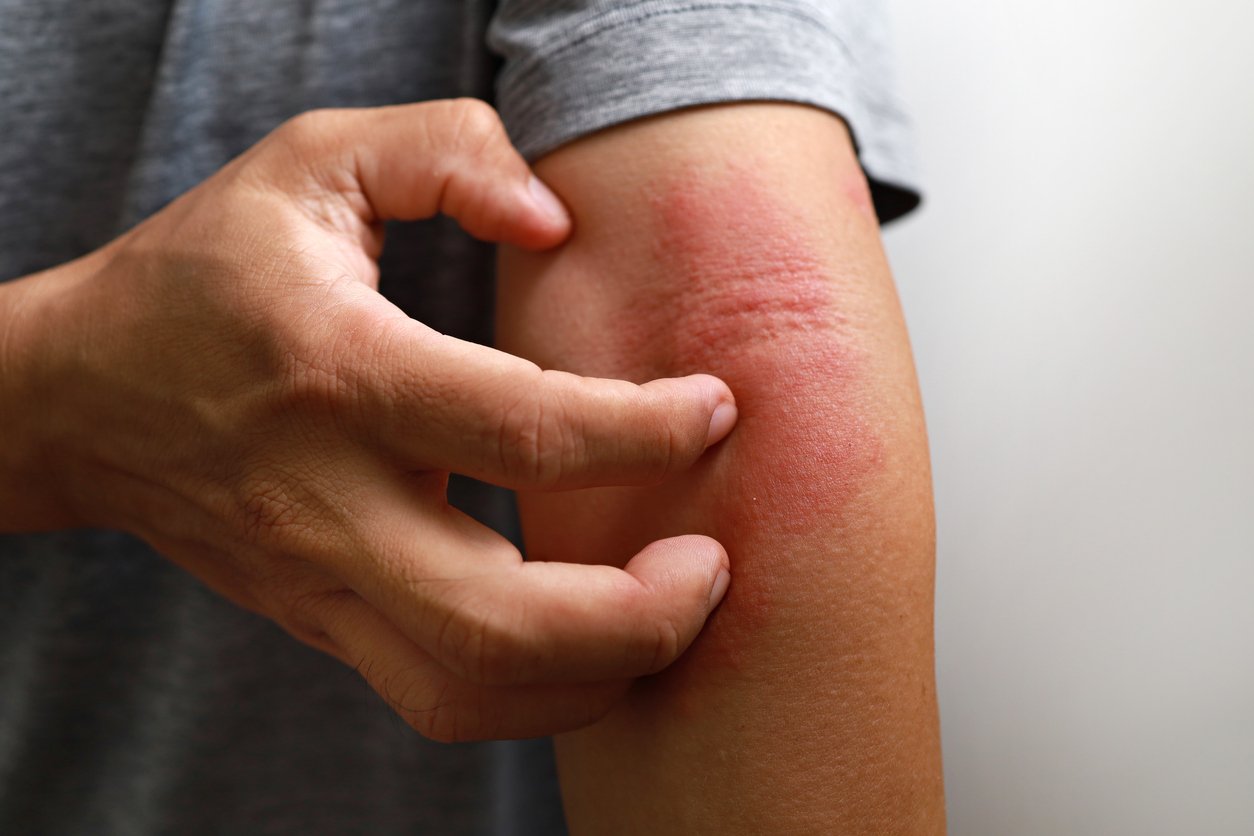Atopic dermatitis, commonly known as eczema, is a chronic skin condition that affects millions of people worldwide. Characterized by red, itchy, and inflamed skin, atopic dermatitis is a complex condition with various triggers and manifestations. You can learn more about atopic dermatitis with an online search.

Symptoms and Diagnosis
The symptoms of atopic dermatitis can vary from mild to severe, and they often include redness, itching, and the formation of small, fluid-filled blisters. Scratching the affected areas can lead to skin thickening, cracking, and oozing. Diagnosing atopic dermatitis involves a thorough examination of the patient's medical history, physical examination, and sometimes, allergy testing. Understanding the symptoms and obtaining an accurate diagnosis are crucial steps in managing this chronic skin condition.
Causes and Triggers
While the exact cause of atopic dermatitis remains unclear, a combination of genetic, environmental, and immune system factors is believed to contribute to its development. Individuals with a family history of atopic conditions, such as asthma or hay fever, may be more susceptible. Environmental factors like exposure to certain allergens, irritants, and climate conditions can trigger or exacerbate symptoms. Recognizing and minimizing these triggers are essential in managing atopic dermatitis effectively.
Treatment Options
Managing atopic dermatitis involves a multifaceted approach. This section explores various treatment options, ranging from topical corticosteroids and emollients to oral antihistamines. In more severe cases, systemic medications or biologic drugs may be prescribed to modulate the immune response. Additionally, lifestyle adjustments, such as avoiding triggers, practicing good skincare, and wearing appropriate clothing, play a crucial role in controlling symptoms. A personalized treatment plan tailored to the individual's specific needs is essential for achieving optimal outcomes.
The Impact on Quality of Life
Living with atopic dermatitis can significantly impact an individual's quality of life. Chronic itching, discomfort, and visible skin changes may contribute to emotional distress, sleep disturbances, and social challenges. In this section, we delve into the psychosocial aspects of atopic dermatitis, highlighting the importance of mental health support and strategies for coping with the emotional toll of this chronic condition. Educating both patients and their caregivers about the psychological aspects of atopic dermatitis is a crucial step in fostering holistic well-being.
Preventive Measures and Long-Term Management
Preventing flare-ups and managing atopic dermatitis in the long term require a proactive approach. This section discusses preventive measures, including identifying and avoiding triggers, practicing proper skincare, and incorporating a healthy lifestyle. Long-term management involves regular follow-up with healthcare providers, adjusting treatment plans as needed, and staying informed about emerging therapies. Empowering individuals with the knowledge and tools to manage their condition can lead to better outcomes and an improved overall quality of life.
Innovations in Atopic Dermatitis Research
As our understanding of atopic dermatitis deepens, ongoing research continues to uncover new insights and potential treatment options. This section explores recent innovations in atopic dermatitis research, from novel medications to advanced therapeutic approaches. Keeping abreast of these developments is crucial for both healthcare professionals and individuals living with atopic dermatitis, as it opens the door to more effective and targeted treatment strategies.
The Road Ahead: Hope and Support
Living with atopic dermatitis can be challenging, but with the right support and management strategies, individuals can lead fulfilling lives. This final section emphasizes the importance of support networks, patient advocacy groups, and ongoing education. By fostering a sense of hope and providing resources for navigating the complexities of atopic dermatitis, we can collectively work towards improving the lives of those affected by this chronic skin condition.

